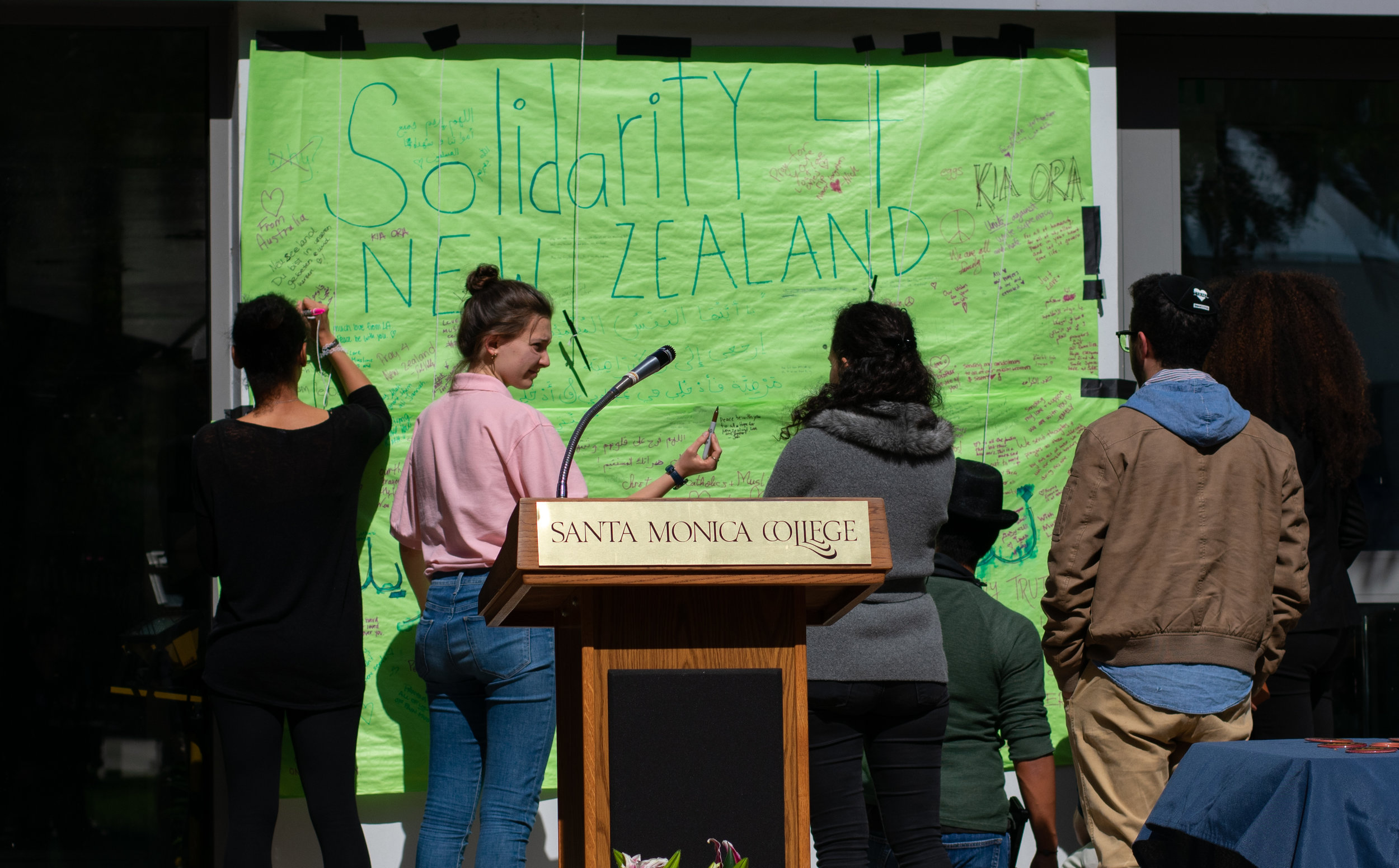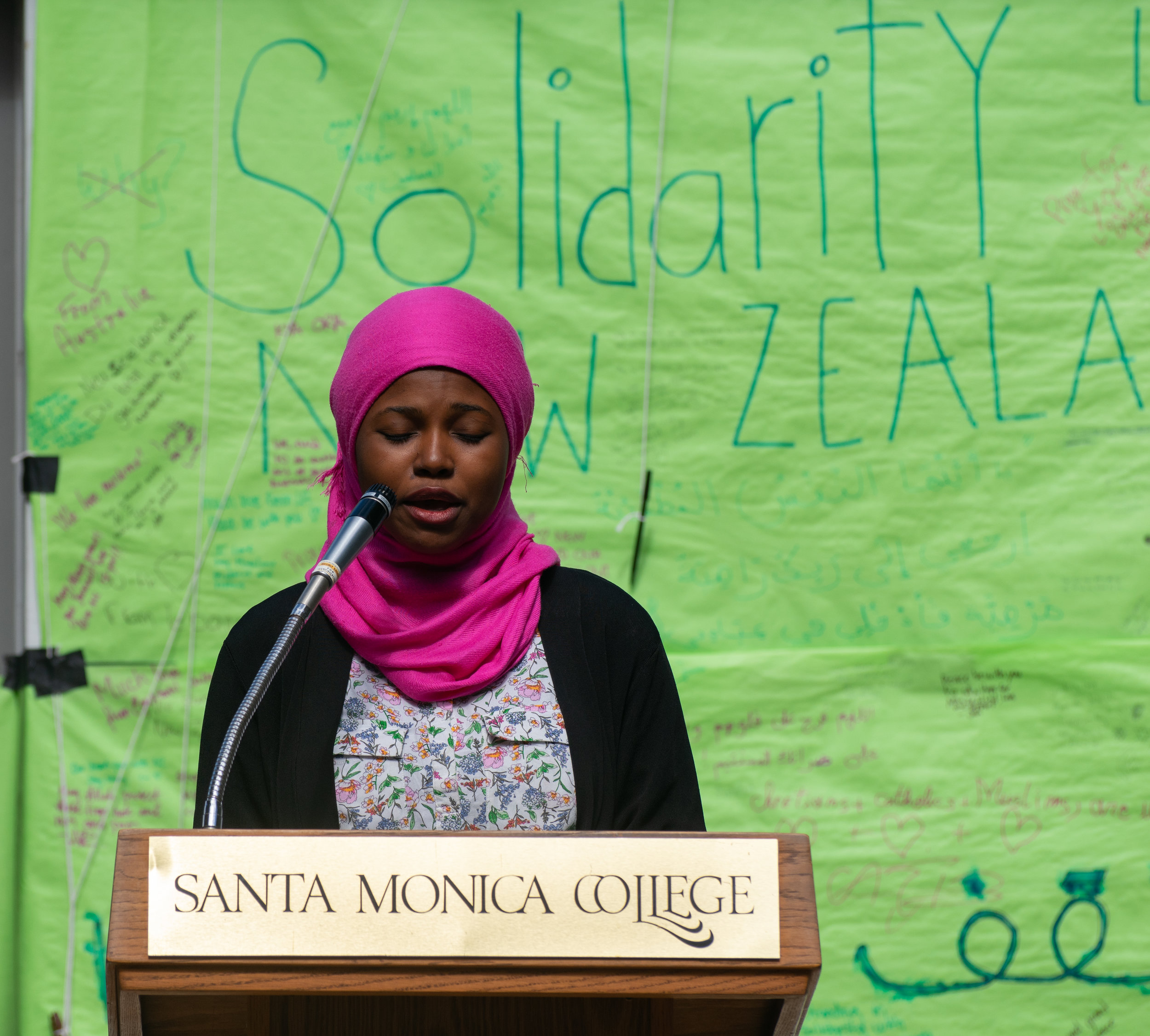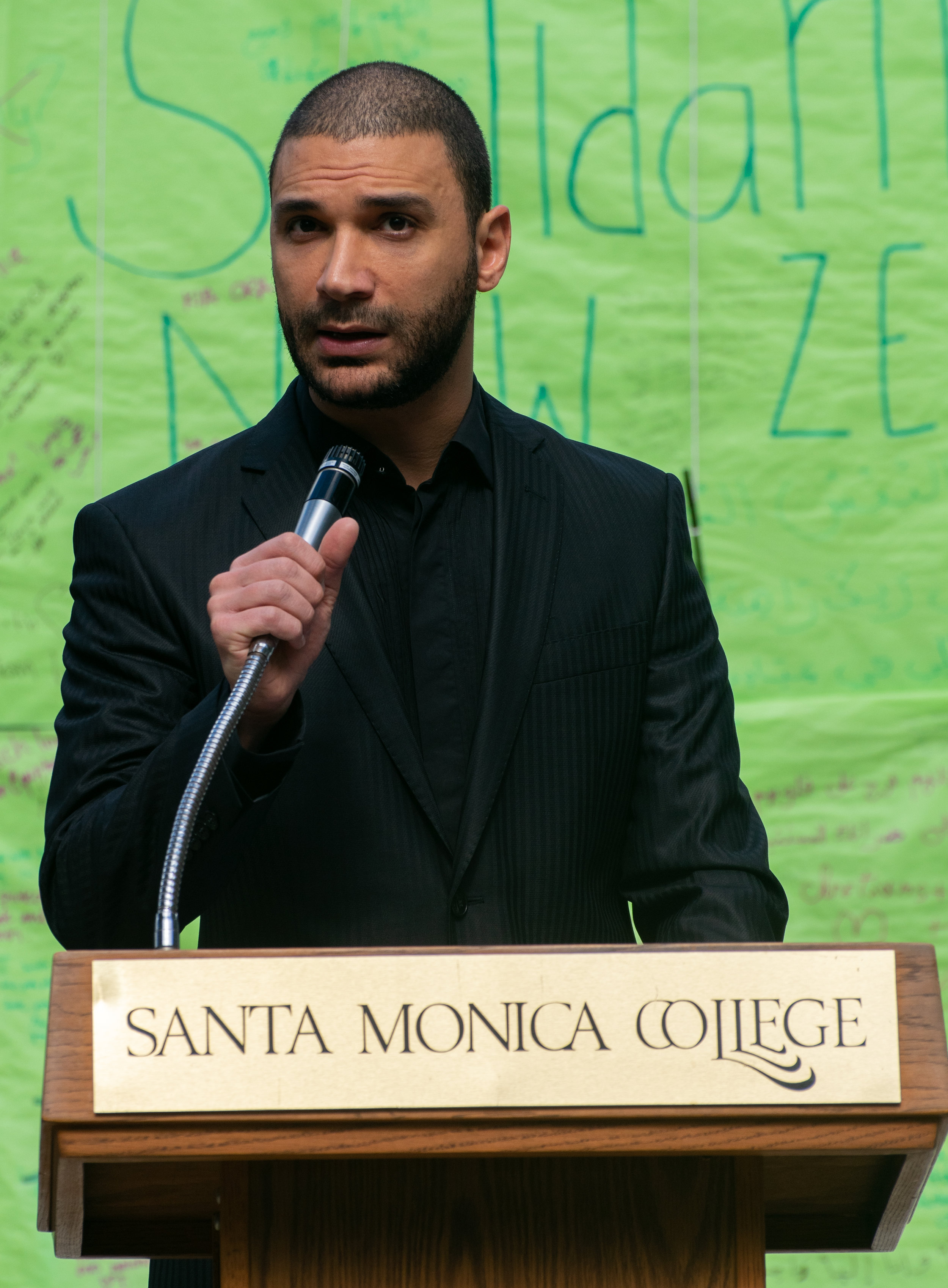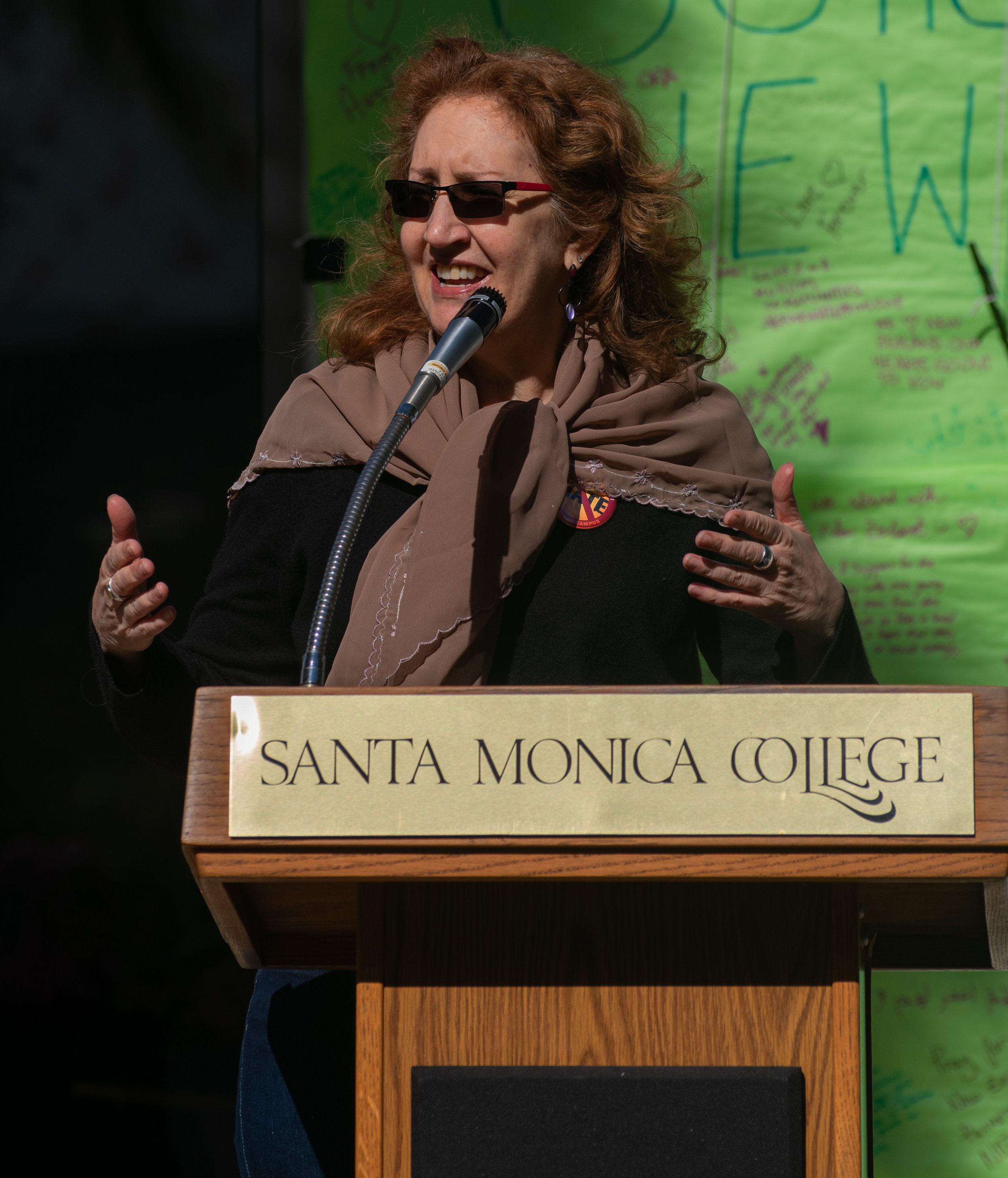SMC’s Interfaith Vigil For New Zealand Calls Its Efforts In Condemning Hate Into Question
A large poster filled with messages from corner to corner was on the window behind Santa Monica College’s (SMC) bookstore. There were sentiments written in both English and Arabic, united in purpose — to stand against hate. Before the image was a flower-adorned podium, and a silent, diverse crowd, with some dressed in Jewish Kippahs on their heads and others wrapped in Keffiyeh scarves. They all looked to the podium, and waited for the speakers to arrive.
This solemnity was the scene of an SMC-organized interfaith vigil held in the afternoon of March 20 for the victims of the Christchurch New Zealand mosque shootings on March 15.
“We all feel the pain. It's real. Our brothers and sisters of humanity were killed. That's not the first time; we'll pray it'll be the last time,” said Imam Zack Michael to those in attendance. Michael lead the vigil, and spoke alongside Rabbi Eli Levitansky, Unitarian Universalist Reverend Rebecca Bijur, and Lisa Patriquin from the Guibord Center for Interfaith Dialogue.
The speakers stressed the importance of interfaith unity. “I join my kindred from other faiths in saying that none of us are safe until all of us are safe,” said Bijur.
Levitansky then urged people to engage in consistent, kind action; a sentiment mirrored from his speech in November 2018 during another SMC vigil for the Pittsburgh synagogue shooting victims.
“A little light dispels a lot of darkness,” Levitansky summed up, after talking about the “ripple effect” of these acts.
The speakers also emphasized the act of standing against hate-induced violence, referring to recent shootings in mosques, synagogues, and churches.
While most students appreciated the college’s reassuring vigil, some had reservations about the college’s key messages.
Yitz Shafa, president of Students Supporting Israel, observed the similarities between the vigils for both Pittsburgh and Christchurch.
“As a Jewish student, looking back to last semester’s vigil for the Pittsburgh synagogue massacre, I was extremely frustrated when I heard leaders of SMC speak out, but not explicitly condemn the terrible act of anti-Semitism that had just taken place,” said Shafa.
While Shafa understood the importance of interfaith ideals and kind acts, he also said the college could be doing more in condemning specific forms of hate. “I do believe that SMC should make more of an effort to condemn Islamophobia and anti-Semitism, as well as groups that have become a breeding ground for these forms of hate.”
Reema Alshammari, the Co-founder and Vice President of Students for Justice in Palestine Club, also had doubts about the diplomatic approach of condemning hate that many institutions, including SMC, have been employing.
“If we really want to end oppression in all of its forms and want our community to be healthy and productive, and our students to feel safe, we shouldn’t be scared of addressing the exact problem,” said Alshammari.
Associate Dean of Student Life, Dr. Nancy Grass, was aware of these concerns.
“Of course we can all do more... but it's hard to know what to do,” she admitted. “You don't wanna give air and breath to hatred at the same time as you denounce it.”
She also acknowledged the current political climate complicating the issue. “Sometimes it feels like the hate is coming out faster than we can combat it.”
Despite these difficulties, Dr. Grass continues to work with her colleagues, optimistic about finding a solution to the dilemma.






